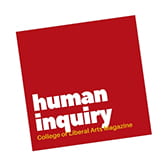Last October a synagogue shooting at the Tree of Life Congregation in Pittsburg, Pennsylvania killed eleven people and left six seriously injured. The assailant lived and was charged with 29 criminal counts including obstruction of the first amendment, criminal homicide, aggravated assault, and ethnic intimidation. This tragedy, along with other acts of anti-Semitism, compelled Dr. Louie Dean Valencia, Assistant Professor of Digital History, and Dr. Margaret Menninger, Associate Professor of History, to take action.
Valencia and Menninger hosted an event on November 9, 2018 to commemorate the 80th anniversary of Kristallnacht, or the Night of Broken Glass, when in 1938 German authorities called for a public uprising against the German Jewish population. The night was marked by violent attacks, the burning down of businesses and religious places of worship, and 91 deaths. After that night, many targeted citizens would eventually be sent to concentration camps.
November’s commemoration, held in the Honors College Coffee Forum in Lampasas Hall, began with a brief history from Dr. Menninger about the inciting incident that led to these tragic events.
“A seventeen-year-old boy trying to get his parents’ exit visas, in fury, shot and killed a German diplomat,” said Menninger. “They were Polish-German refugees who had been expelled back to Poland. The Poles didn’t want them, and the Germans didn’t want them. Everybody said they weren’t citizens.”
The shooting of this German official gave authorities a way to act on a long history of anti-Semitism within the country.
“This is a state behaving this way to its own citizens. This is in fact state-sponsored oppression of a minority within itself; 1938 is maybe the first or second moment where it becomes clear that they [German Jews] weren’t going to be able to ride this out, people were going to have to leave,” said Menninger.
During the commemoration at Texas State, students, faculty, and the general public were invited to come together in a space designed to be pluralistic, which Dr. Valencia describes as “accepting of the multiple ways that a person can live – race, gender, class, nationalism, sexuality, ability, it’s not something that should be used against you.”
Every college on campus expressed support for the event, and for Dr. Valencia, this was something remarkable.
“That was a goal for me, to have a statement against hate, and it was a resounding statement. Hate, prejudice – is something we shouldn’t stand for,” he said.
In addition to a moment of silence and open dialogue, the event featured philosophical discourse from Dr. Rebecca Raphael, Professor of Philosophy, readings of German short poems by Dr. Lisa Haegele, Assistant Professor of Modern Languages, and a musical performance by cellist Gabriel Vasquez.
Alejandro Allen, a graduate student in the Department of Anthropology, understood the importance of inhabiting spaces where discussions like these can be held.
“It felt like we were all coming together for the same purpose. Some of us were Jewish, some of us were German, and some of us weren’t. It showed that we can be all those different things and still come together,” Allen said.
Lila Perlman, a sophomore in the College of Fine Arts and Communication, had a personal stake in attending. She is Jewish herself, and her grandparents were in Germany in 1938.
“It’s really important to not forget that this has the potential to happen again,” she explained. “The current administration has been compared to other fascist regimes. It is super important to be able to see those parallels and learn from the past. It’s not just about the Jews being hurt, this kind of hatred hurts everyone.”
President Trump has claimed that he could use the 14th amendment to end birthright citizenship, the practice of granting automatic U.S. citizenship to any person born on American soil.
A German historian herself, Dr. Menninger wants to remind the public about the precarious nature of their own citizenship, especially for those most in danger.
“Jewish Germans were German citizens until 1935, and then suddenly they weren’t,” she said. “We all owe it to each other to be aware of populations who are potentially vulnerable to losing their citizenship.”
The event functioned to help the public better understand what happened during the events leading up to 1938, as well as get a working knowledge of why they happened. Learning more about tragedies like Kristallnacht can help inform us about how to better navigate situations of oppression and violence that we may find ourselves in today.
